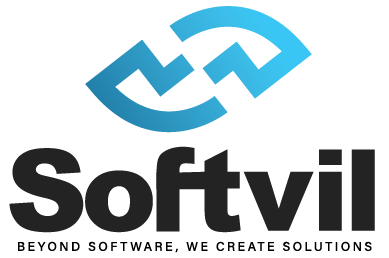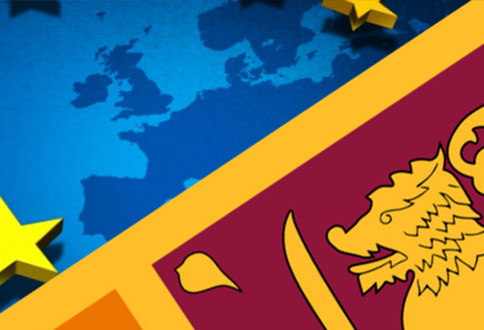The Sri Lankan tech industry has been making steady progress in recent years and has emerged as a growing player in European markets. With its skilled workforce, favorable business environment, and growing infrastructure, Sri Lanka has become an attractive destination for companies looking to outsource software development, engineering, and digital services. The tech industry has become a key driver of Sri Lanka’s economy, with significant contributions to GDP growth and employment opportunities.
In this article, we will explore the strengths and opportunities of the Sri Lankan tech industry in European markets, as well as the challenges and risks that companies face when operating in these markets. We will also highlight some of the success stories and case studies of Sri Lankan tech companies that have made a mark in European markets. Additionally, we will discuss strategies for success for Sri Lankan tech companies seeking to expand their operations in Europe.
Sri Lanka’s tech industry strengths
Sri Lanka’s tech industry has several key strengths that have contributed to its growth and success. One of the most significant strengths is the country’s skilled workforce and talent pool. With a strong focus on education and training in science, technology, engineering, and mathematics (STEM), Sri Lanka has a large pool of talented and well-educated professionals with skills in software development, engineering, and digital innovation. In addition, Sri Lanka has a favorable business environment that supports foreign investment and entrepreneurship. The government has implemented policies and initiatives aimed at promoting growth and development in the tech industry, including tax incentives and streamlined business registration processes.
This has helped to create a supportive ecosystem for startups and established tech companies alike. Moreover, Sri Lanka’s infrastructure development has also been a key strength in the tech industry. The country has invested heavily in building world-class infrastructure, including high-speed internet connectivity, modern office spaces, and transportation networks, to support the growth of the industry. These strengths make Sri Lanka an attractive destination for companies looking to expand their operations in the tech industry, and a potential source of high-quality tech services for European markets.
Opportunities for Sri Lankan tech companies in European markets
Sri Lankan tech companies have significant opportunities to expand their operations and services to European markets. One of the most prominent areas of opportunity is in software development and engineering services, where Sri Lanka’s highly skilled workforce and competitive pricing can offer a compelling value proposition for European clients. Additionally, Sri Lankan tech companies have the expertise and capabilities to provide digital innovation and product development services, which can help European companies to stay ahead of the curve in their respective industries.
Another significant opportunity for Sri Lankan tech companies is in outsourcing. With a cost advantage over their European counterparts, Sri Lankan tech companies can offer competitive pricing for outsourcing services while maintaining high quality and efficient delivery. This can be particularly appealing to small and medium-sized enterprises in Europe that may not have the resources or expertise to develop their own in-house tech capabilities. Overall, Sri Lankan tech companies have a lot to offer European markets in terms of innovation, expertise, and cost-effectiveness. As the tech industry continues to grow and evolve, the opportunities for collaboration and partnerships between Sri Lankan and European companies are likely to expand.
Success stories and case studies
There are several success stories of Sri Lankan tech companies that have successfully established a presence in European markets. One notable example is Softvil Technologies, a software engineering firm that has offices in both Sri Lanka and Europe. Another successful case study is Lanka Solution, a Sri Lankan-based software testing service provider that has established a strong presence in the European market. These success stories demonstrate the potential for Sri Lankan tech companies to succeed in European markets and the opportunities for collaboration and partnerships. Sri Lankan companies can offer competitive pricing, high-quality work, and a strong talent pool, making them an attractive option for European companies looking to outsource or establish partnerships. Furthermore, Sri Lankan and European companies can also benefit from partnering together to leverage their respective strengths and expertise. Collaborations can lead to mutual growth and expansion in their respective markets, driving innovation and progress in the global tech industry.
Challenges and risks for Sri Lankan tech companies in European markets
Despite the opportunities available, there are also several challenges and risks for Sri Lankan tech companies looking to establish a presence in European markets. One of the biggest challenges is navigating regulatory and legal barriers. Different countries have different laws and regulations, which can be complicated and time-consuming to navigate. This can result in delays or even legal challenges that can impact the company’s reputation and bottom line. Cultural differences and communication barriers can also be significant challenges. European markets have their own unique culture, which may be very different from Sri Lankan culture. This can lead to misunderstandings, communication breakdowns, and difficulties in building relationships with clients and partners.
Additionally, Sri Lankan tech companies face competition from other outsourcing destinations, such as India, China, and Eastern Europe. These countries have well-established outsourcing industries, and companies may find it difficult to compete on price and quality. Overcoming these challenges requires a deep understanding of the target market, strong communication skills, and a willingness to adapt to different cultural norms and legal systems. Companies may need to invest in training and development programs to help their staff become more culturally aware and skilled at navigating regulatory and legal barriers.
Strategies for success
To succeed in European markets, Sri Lankan tech companies must develop effective strategies that enable them to differentiate themselves from the competition. One key strategy is to focus on building relationships and partnerships with clients and other stakeholders. This involves understanding the needs of clients and developing tailored solutions that address their specific requirements. Building strong relationships can help to build trust and credibility, and may lead to long-term partnerships that are beneficial for both parties. Another important strategy is to focus on quality and innovation.
Sri Lankan tech companies should invest in research and development to stay at the forefront of technological advancements, and should prioritize quality control to ensure that their products and services meet or exceed European standards. Addressing regulatory and legal challenges is also crucial. Companies should seek legal and regulatory advice to understand the requirements and regulations of each European market they operate in. They should also work closely with clients to ensure compliance with all relevant laws and regulations. Finally, companies should focus on building a strong brand and reputation. This can be achieved through effective marketing and communication strategies, as well as through quality products and services and excellent customer service. A strong brand and reputation can help to attract new clients and build long-term partnerships.
Conclusion
In summary, Sri Lanka’s tech industry has a lot to offer to European markets. Its skilled workforce, favorable business environment, and infrastructure development make it an attractive destination for outsourcing and partnership opportunities. Sri Lankan tech companies have already found success in European markets, and there is potential for further growth and collaboration. However, challenges such as regulatory and legal barriers, cultural differences, and competition from other outsourcing destinations must be addressed. Sri Lankan tech companies can employ strategies such as building relationships and partnerships, focusing on quality and innovation, and addressing regulatory and legal challenges to succeed in European markets. With the right approach, Sri Lankan tech companies can tap into the vast potential of European markets and contribute to the growth of both the Sri Lankan and European economies.

